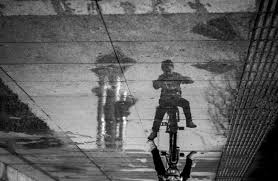Sheltered kids lack life skills

Photo by Photo used with permission of pxhere.com
In our day and age, many parents, with the influence of technology and social media, have begun to overshelter their kids. Although this sheltering comes from good intent, it often causes children to grow up without a true understanding of the real world.
The concept of riding your bike around town and having a sunset curfew may seem obsolete in the mind of any child from this generation, but even the people who grew up 20 years ago can vividly remember spending their childhood roaming outside. Whether it be household rules based on the ever-changing societal environment, gender, culture, or even technology, there is one constant factor that plays a major role in the development of every generation: their parents.
In the 21st century, apps such as Find my iPhone and Life360 have made it possible for parents to pinpoint your location at any time of day. While many students may consider this tracking invasive, especially in their teenage years, when they are trying to develop their individuality, the truth is that parents are only looking out for their kids. Often, the utilization of these devices is rooted in care. The rise in media coverage of crime has left parents more susceptible to believing that the world is more dangerous than it has ever been, even though crime rates are lower than they were two to three decades ago. This can lead to the need for some parents to overprotect.
A parent’s major concern is for the physical well-being of their child, as that is one that they can always keep track of, and so it makes sense that they would do anything to preserve that. We believe that ensuring the safety of the child is different than obsessively “stalking” their child, as many teenagers might assume.
However, technology acts as a double-edged sword. While some aspects of technology have allowed parents valuable insight into their child’s safety, suppression of a child’s freedom will not stop them from rebelling. Our digital era has made it possible for children to lose their innocence through social media. The more physical restrictions that are placed on a child, the more likely many kids will be to find a way to escape their parents’ set boundaries and use online platforms/ enhanced communication to discover the world for themselves. Through portals like Twitter, Snapchat, and Instagram, young children have the ability to learn about the darker parts of our society much earlier than they should, thus canceling out any good intentions the parent may have had. If parents do not take the responsibility to keep their kids informed and do not allow their kids the freedom to develop their own perspectives, the intent of careful sheltering will end up backfiring on them.
We identify this excessive sheltering of a child as a “bulldozer parent”. This type of parenting is ineffective because it clears out any sort of difficulty for their child and results in the child having no real desire to be independent. Once it is time for college, kids with a sheltered childhood find themselves unable to handle the pressures that come with independent living, or spinning out of control because they no longer have the tight boundaries that they have lived their entire lives with. Parents should allow their kids the freedom to go out and explore the world for themselves; however, we understand that some boundaries are necessary in order to avoid serious problems in the long run. After all, as teenagers, we are still learning about ourselves and the world.
There are many hidden biases that also influence how a child is raised. For example, the culture in which the parent grew up in often translates to the culture that they create for their own children. For example, parents who were raised in strict households often create the same environment for their children. However, these methods of parenting are often dated and the children do not resonate with the same mindset, thus leading them to rebel and get themselves in trouble.

As a senior, Caroline's back for her third year as Digital EIC. If you ever catch her outside of school, she'll probably be running with the cross country...

After being in the journalism program for three years, Parul will be starting this year as a senior! Outside of the journalism lab, you can find her playing...
